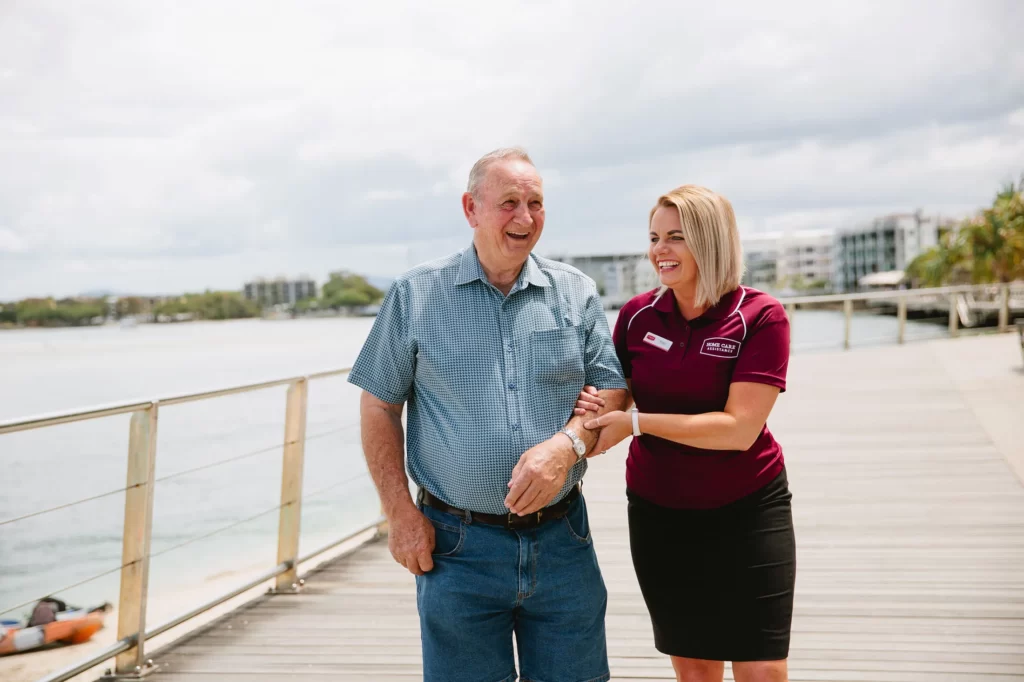“People didn’t know how to talk to me even though I was the same person I was five minutes before I told them I had it. They just saw this big A on my forehead. They didn’t look at me as the same person – I was stupid, or couldn’t carry a conversation, or have a single thought on my own, which was very distressing for me.” – Anonymous person living with dementia
Receiving a diagnosis of dementia can be traumatising. In a single moment, a word scribbled in a medical chart changes everything. This trauma is often assumed to be caused by dementia itself. The reality is that dementia was experienced long before the diagnosis. The change a diagnosis makes is not an internal one but an external one.
The concept of “Yes, and…”
One of the most useful tools to support communication through the early part of the dementia journey is to borrow the improvisational theatre concept of “yes, and…”. Karen Stobbe is an improvisational theatre performer and family care partner. She embodies and teaches the basics of improvisation for communicating within dementia. According to Karen, it is best to not argue the premise, but to build on it. In other words, don’t say no, simply say “Yes, and…”
People living with dementia hear that their reality is incorrect all the time. “No, I’m not your sister.” “No, it is not 1964.” “No, you can’t have ice cream. It’s breakfast time.” Reality is relative. Physics is proving this, and our hearts already know it. ‘Yes, and…’ is powerful in the context of dementia. Take any two people living a day together; at the end of the day ask them about it and you will get two different stories. We are all living our own personal realities. When we get curious about the differences in our realities, we come to know one another.
The approach of saying ‘Yes, and…” necessitates acknowledging another’s reality. The ‘yes’ says ‘I am here with you in your world. I am curious about it and want to be with you’. The ‘yes’ says ‘I accept you exactly as you are’. The ‘and’ keeps the flow going and builds connection and relationship. The ‘and’ allows you to co-create a moment. “Yes, and” can help you have more good days with dementia.
Communication expectations
When communicating within dementia, there are two expectations we need to be mindful of, and change. We need to drop the expectation for communication to be as it always has been. Instead, stay open and curious about how communication is being transmitted and received. Secondly, drop the expectation that a dementia diagnosis means one cannot communicate. Dementia can, if we let it, teach us to communicate on a deeper, more human, level. As the late Dr. Richard Taylor, a fierce self-advocate living with dementia explained, “My relationships with my spouse, my family, and my friends have broadened and, in some ways, deepened. We spend more time really being together. We talk more, we hug more, we cry more, we laugh more and harder and longer together.”
The concept of “Being With”
Set the intention for communication to ‘being with’. The tradition of ‘being with’ comes from the existentialist movement. ‘Being with’ means that you are not coming in wanting something from the other person. ‘Being with’ means you do not want them to do something or be a certain way. ‘Being with’ means you want to be with them wherever, whenever and however they are. ‘Being with’ shows that you value who is here right now. Person-cantered psychotherapy founder Carl R. Rogers wrote: “People are just as wonderful as sunsets if you let them be. When I look at a sunset, I don’t find myself saying, ‘Soften the orange a bit on the right-hand corner.’ I don’t try to control a sunset. I watch with awe as it unfolds.” We can all experience people, including and especially those living with dementia, to be as wonderful as sunsets. Be with each other, drop expectations and communicate using ‘yes, and.’
Resources
